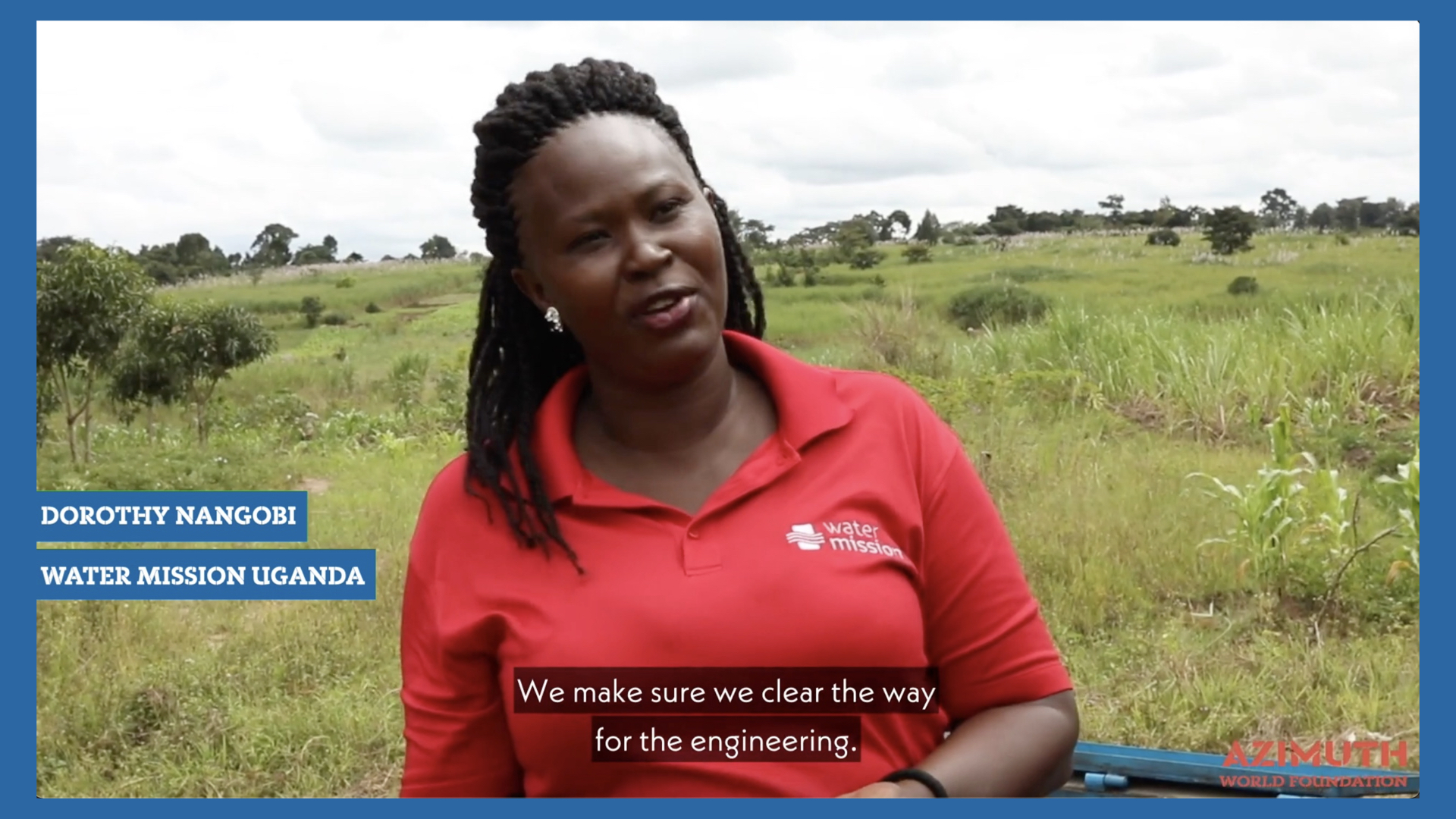Visiting Water Mission’s Safe Water Projects in Uganda – Interview with WASH Office Dorothy Nangobi

While we were building our partnership with Water Mission, we visited some projects in Uganda. We saw firsthand the impact these safe water systems have on so many families in so many communities.
WASH officer Dorothy Nangobi guided us on this learning trip and shared her passion for the incredible work Water Mission is doing there. We couldn’t be prouder of the work we have developed with Water Mission since then. Together, we delivered safe water solutions to communities in Uganda, Malawi and Tanzania.
Learn more about our work in Safe Water in the Projects section.
Connecting the Dots
Are you a podcast fan? You can listen to our interview with Dorothy and subscribe to “Connecting the Dots” on Spotify, Apple Podcasts, Google Podcasts, TuneIn and Stitcher:
We are an ally to Indigenous Peoples and Local Communities dealing with matters of access to Health and Water and the protection of the right to maintain traditional ways of living in harmony with Nature.
Visiting Water Mission’s Safe Water Projects in Uganda – Interview with WASH Office Dorothy Nangobi

While we were building our partnership with Water Mission, we visited some projects in Uganda. We saw firsthand the impact these safe water systems have on so many families in so many communities.
WASH officer Dorothy Nangobi guided us on this learning trip and shared her passion for the incredible work Water Mission is doing there. We couldn’t be prouder of the work we have developed with Water Mission since then. Together, we delivered safe water solutions to communities in Uganda, Malawi and Tanzania.
Learn more about our work in Safe Water in the Projects section.
Connecting the Dots
Are you a podcast fan? You can listen to our interview with Dorothy and subscribe to “Connecting the Dots” on Spotify, Apple Podcasts, Google Podcasts, TuneIn and Stitcher:
We are an ally to Indigenous Peoples and Local Communities dealing with matters of access to Health and Water and the protection of the right to maintain traditional ways of living in harmony with Nature.





